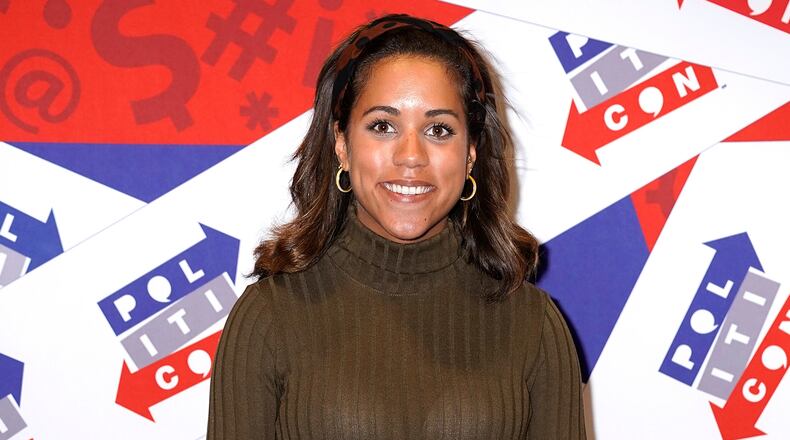There’s been a lot of media attention to the rise and fall of journalism wunderkind Alexi McCammond, who, at 27, was about to take the reins at Teen Vogue until she was derailed by anti-Asian tweets she posted on social media a decade ago.
In tweets she wrote as a 17-year-old at the University of Chicago, McCammond said, “Give me a 2/10 on my chem problem, cross out all of my work and don’t explain what i did wrong..thanks a lot stupid asian T.A. you’re great.” Another said, “Now googling how to not wake up with swollen, asian eyes…”
Is this a teachable moment for teens to not post racist stuff on social media because it could haunt them for years to come?
Or, is the teachable moment here that we shouldn’t execute people in the public square for insensitive and dumb things they did as teenagers?
As a political writer for the news site Axios, McCammond was already an acclaimed reporter, named the emerging journalist of the year by the National Association of Black Journalists in 2019. Her offensive tweets were circulated that year, and she apologized and deleted them. But those tweets lived on in screenshots and resurfaced earlier this month when McCammond’s top job at Teen Vogue was announced.
What makes this situation more nuanced is McCammond was about to lead a magazine that targets older teens. To minimize her comments as a foible of youth would not sit well with those readers and contradicts the ethos of Teen Vogue that its readers are smart and capable and should be heard and heeded.
Initially, Condé Nast, the publisher of Teen Vogue defended McCammond, but the racist remarks rankled 20 staffers of the magazine, who took to social media to tell readers they, too, had apprehensions about their new boss.
The staff note said: “We’ve heard the concerns of our readers, and we stand with you. In a moment of historically high anti-Asian violence and amid the on-going struggles of the LGBTQ community, we as the staff of Teen Vogue fully reject those sentiments. We are hopeful that an internal conversation will prove fruitful in maintaining the integrity granted to us by our audience.”
A few advertisers in Teen Vogue suspended their ads in response to the McCammond controversy. But McCammond was not without supporters. In the Atlantic, staff writer and Yale lecturer Graeme Wood lamented that a teen magazine would not “acknowledge what every adult knows, which is that the entire point of being a teenager is to make and correct the most mortifying errors of your life.” Wood argued against a culture of denunciation in social media that he said will not accept apologies or extend forgiveness.
In the end, McCammond was out of a job. In a statement posted last week to Twitter, she said, “My past tweets have overshadowed the work I’ve done to highlight the people and issues that I care about—issues that Teen Vogue has worked tirelessly to share with the world—and so Condé Nast and I have decided to part ways. I should not have tweeted what I did and I have taken full responsibility for that.”
Colleges have rescinded admissions offers to high school seniors due to racist posts on social media. In 2017, Harvard told 10 incoming freshmen to stay home because of their participation in an offensive Facebook group called “Harvard memes for horny bourgeois teens.” The group was an offshoot of a larger Harvard Class of 2021 Facebook group, and members traded memes that were sometimes racist or obscene.
Atlanta-based children’s writer Morgan Young and I exchanged messages about McCammond and Teen Vogue, and I think she summarized all the moving parts. “I’m good with this woman losing her job, mainly because a business like that can’t afford to lose subscriptions over her and she needs to pay some kind of consequences,” said Young, author of “Lana & the Water Carrier.” “But I’m curious how long she will have to suffer for her stupidity as a teen. My friends and I keep discussing how to explain to the kids that what they do on the internet can live forever. At the same time, we want to make clear that we don’t think it should live forever. And, finally, we don’t even want the ugly stuff like what that Teen Vogue editor wrote to even exist in our kids’ hearts.”
About the Author
The Latest
Featured



